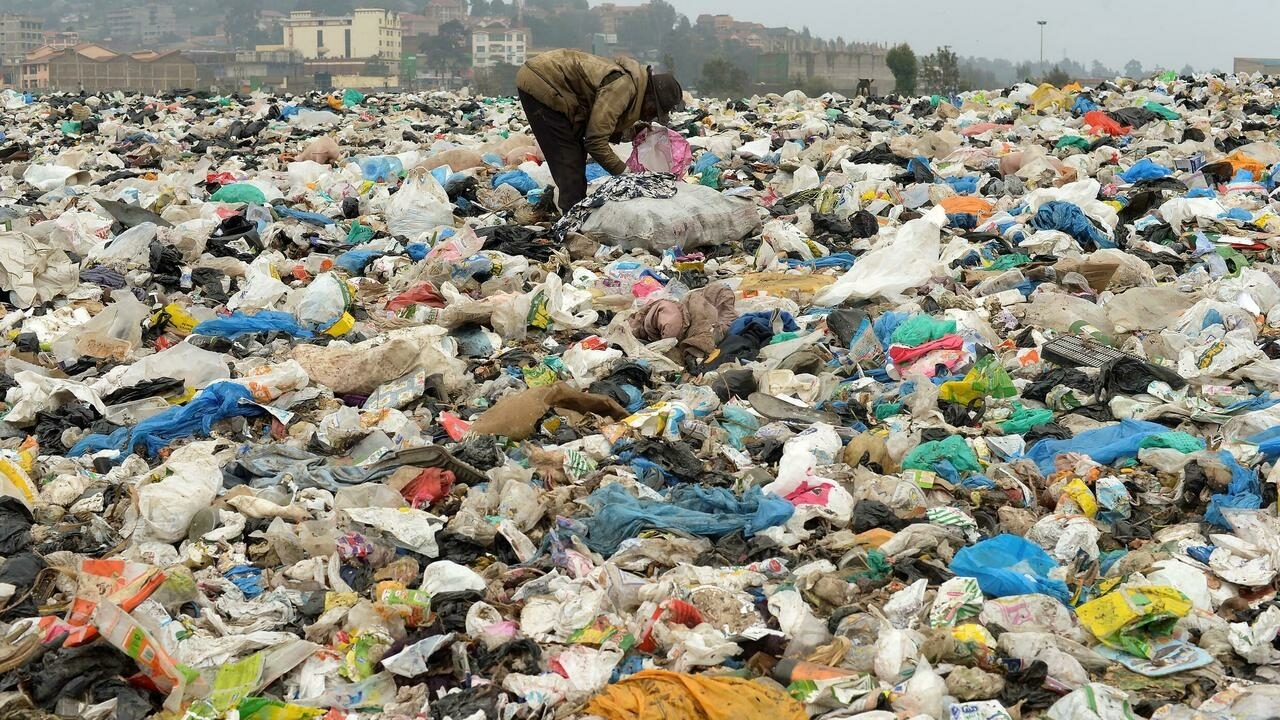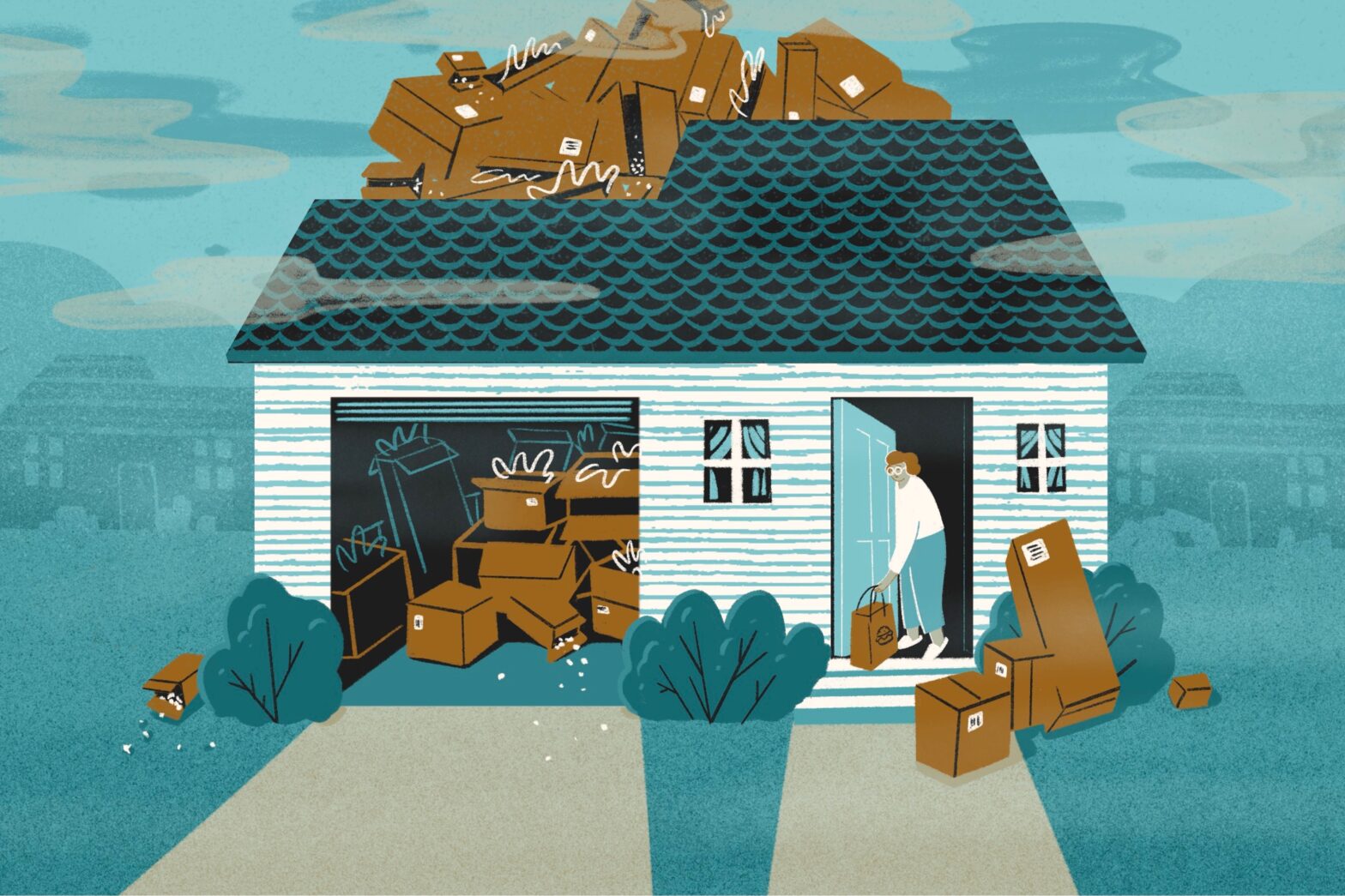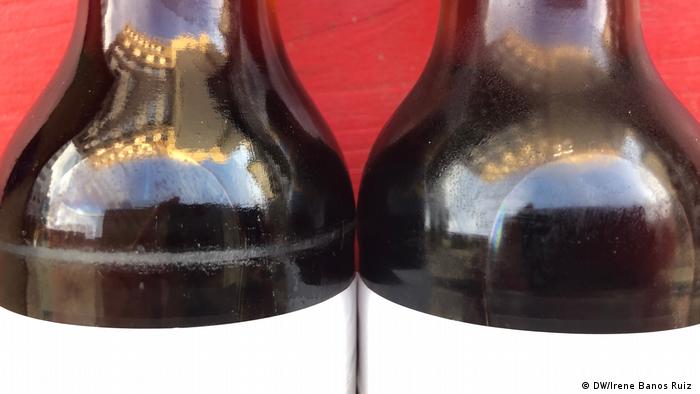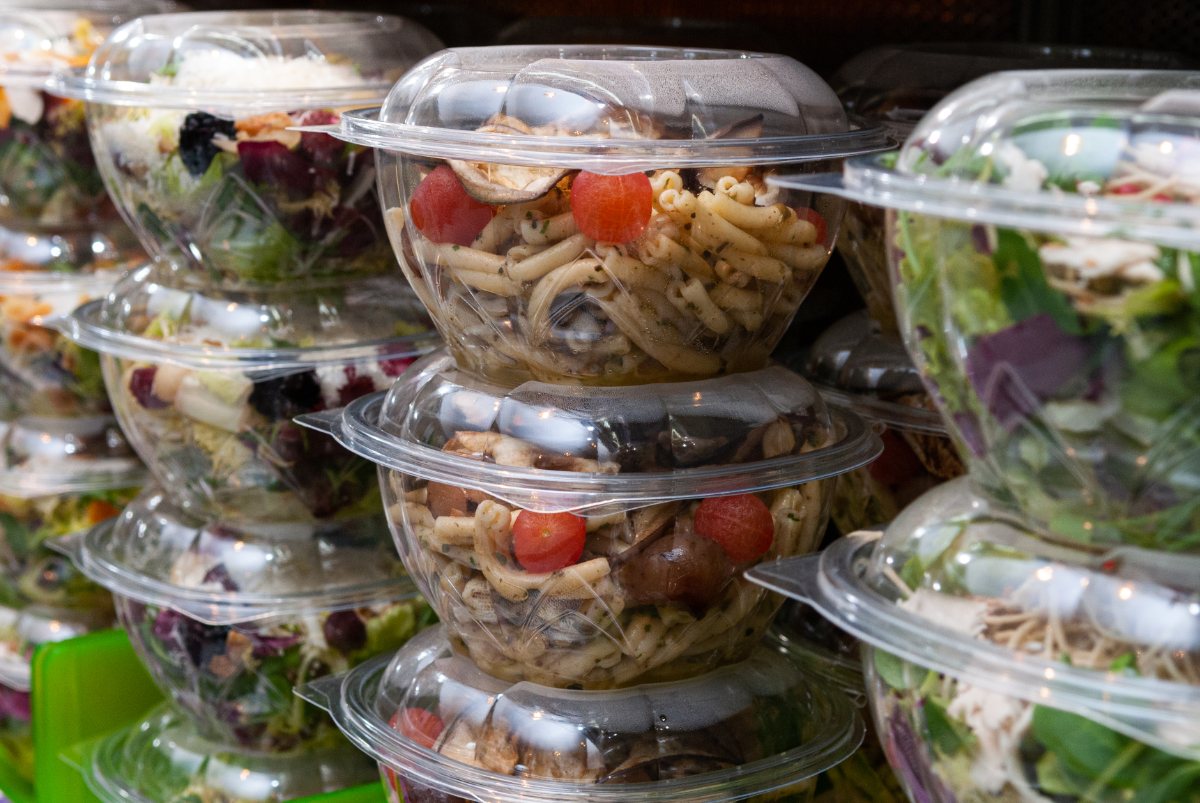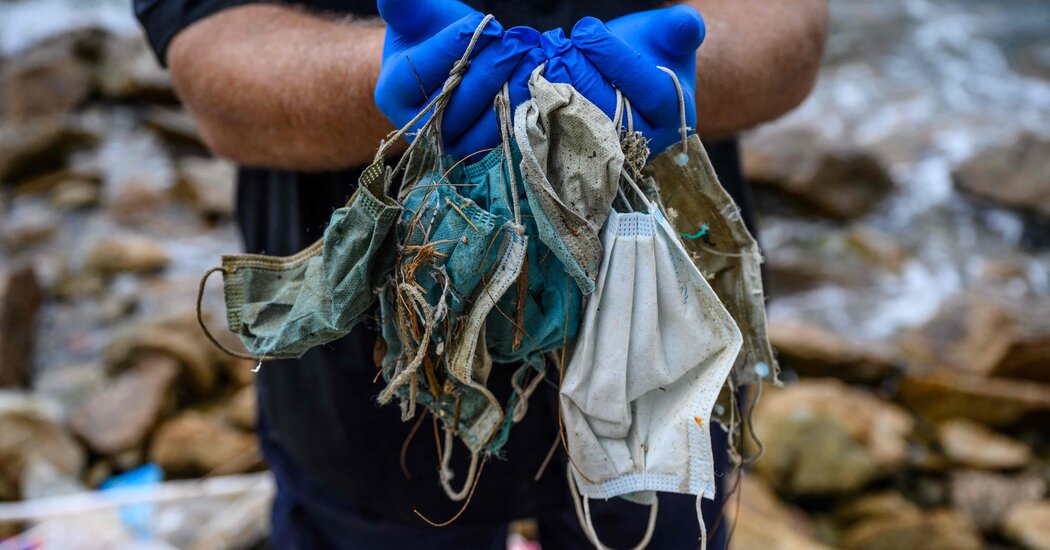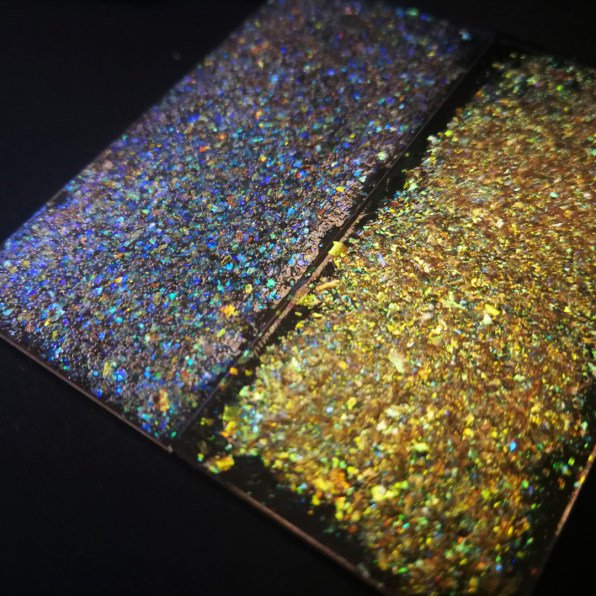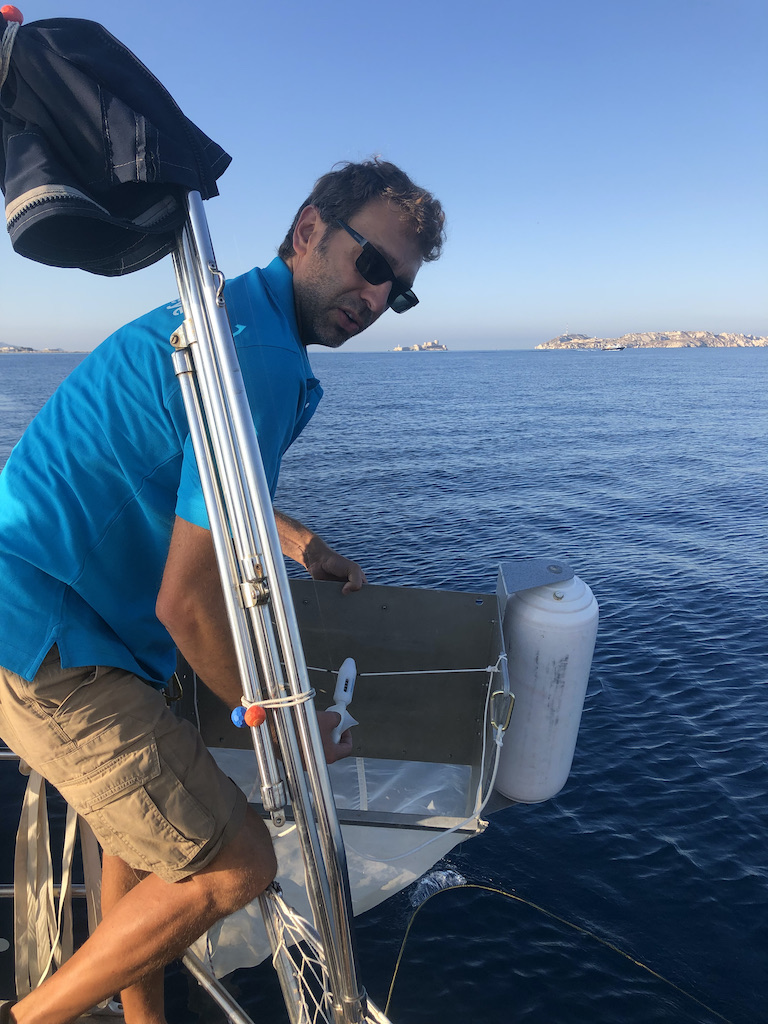.cms-textAlign-left{text-align:left;}.cms-textAlign-center{text-align:center;}.cms-textAlign-right{text-align:right;}.cms-magazineStyles-smallCaps{font-variant:small-caps;}As millions of Americans hunkered at home during Covid lockdowns, the internet became more than a way to do their jobs or pass the time — it became a central way they shopped for goods like groceries, hot meals, furniture and clothing.
The pandemic, in effect, hit overdrive on a decadeslong shift toward online shopping. E-commerce sales jumped nearly 32 percent in 2020 compared to the prior year, according to U.S. Census Bureau data. So far this year, online sales are on track to outpace that record. To meet the demand, delivery companies such as Amazon, FedEx, UPS and food delivery services wrapped millions of purchases in layers of cardboard and plastic and hired thousands of new drivers to bring them to our doorsteps.
Now, cities, climate scientists and companies are trying to figure out the consequences for the planet.
The answer isn’t clear-cut. Consumers drove fewer miles to and from stores, while delivery companies drove more — so what was the net effect on greenhouse gas emissions? Offices and restaurants generated less waste, but all that food and packaging delivered to homes added to trash pickups from residential neighborhoods. Which is worse for landfills? And does it even matter, when overall we are consuming more than ever before?
“People have been asking this question since the Internet was invented,” said Scot Case, vice president of corporate social responsibility and sustainability at the National Retail Federation. “But it probably isn’t helpful, because e-commerce is happening, period, and people are shopping online, in-store or some hybrid of the two. So, I think the real question is, how do we make all of those options as sustainable as possible?”
In the decade or so prior to Covid, fewer than 10 academic studies explored whether e-commerce or in-person shopping is better for the environment. In general, the studies that were done found that online shopping produced fewer carbon dioxide emissions than traditional brick-and-mortar retail.
However, few accounted for the enormous variability in those supply chains, from consumer behavior to logistics to waste. For instance, whether an in-store shopper bought one or multiple items affects the climate calculations. So does the type and amount of packaging, along with whether those items were later returned. The distance to and from stores and distribution hubs is key, as is the mode of transportation: A gas-powered vehicle, a bike, or an electric car? What if that electric car was powered by a grid running on fossil fuels? What is the different impact of heating and cooling stores and warehouses?
These questions became more urgent during Covid as people shopped more and, perhaps paradoxically, became more concerned about sustainability.
Online shopping surged during the pandemic
E-commerce sales, as a percentage of total retail sales
The most recent research is starting to incorporate more of the complexities of retail. In January, MIT’s Real Estate Innovation Lab published a study that simulated hundreds of thousands of those kinds of scenarios and found online shopping to be more sustainable than traditional retail 75 percent of the time.
But consumers today aren’t choosing one or the other, underscoring just how tricky this assessment is. So the MIT researchers recommended how shoppers and policymakers could instead help reduce carbon footprints at various steps of the supply chain, because either way, people are buying more.
“This is so much more complicated than, ‘E-commerce is better than brick and mortar,’” said Andrea Chegut, director of the lab. “We’re not on a good trajectory, because everyone is using both strategies. So on the aggregate, there will be more emissions.”
However theoretical it might seem, the question of the environmental impact of shopping has real consequences. The entire supply chain of everything we consume — from the extraction and processing of natural resources into products that are shipped to us and then used and disposed of — accounts for half of global emissions, according to the United Nations. The U.N. also estimates that global material use could double in the coming decades.
Brands and retailers are at the nexus of those supply chains. And only recently have major companies started mapping the entire carbon footprint of their sprawling networks, identifying sources of emissions and setting goals to reduce them. For many, third-party suppliers and customers account for the majority of their climate pie.
More from Recovery Lab
Previous Slide
Next Slide
There are millions of retailers in the U.S. Of those, nearly 40 top companies have either set science-based targets to slash their total carbon footprints in alignment with the Paris agreement, or pledged to do so, the National Retail Federation found. Those retailers include Amazon, H&M, Ikea and Walmart.
At first brush, it appears that there are three key areas where e-commerce and traditional retail diverge: the last mile (whether a product was delivered or a consumer made a trip to buy it), the buildings (storefronts or warehouses) and the packaging waste.
Most research suggests that ordering goods for delivery is more beneficial for the environment because it means people are making fewer individual shopping trips. The average U.S. consumer goes to the grocery store at least 300 times a year. If they drove there, it was likely in a gas-powered vehicle. Plus, there tends to be higher energy demands at storefronts compared to warehouses.
But that scale “could easily tip in the other direction,” according to a study of the U.S. market published last spring by the sustainable investment firm Generation. The firm’s researchers found that e-commerce is 17 percent more carbon efficient than traditional retail, but could change with a few tweaks to their assumptions, such as the number of items purchased in a single visit, the amount of packaging and the efficiency of last-mile delivery.
In January, the World Economic Forum also found that growing demand for delivery could spike emissions and traffic congestion by more than 30 percent in the world’s top 100 cities by the end of the decade. The report accounted for the emissions saved from fewer individual shopping trips but didn’t consider packaging, and recommended that companies switch to electric vehicles, consolidate hubs for packages and boost nighttime deliveries.
But increasingly, the lines between online and in-store are getting blurred.
A lot of e-commerce growth is within the “omni-chain,” the supply chain shared by both in-store and online components, said Mark Matthews, NRF’s vice president of research development and industry analysis. Retailers are selling products via multiple channels, and consumers are using all of them — items bought online can be delivered to doorsteps or to a physical store for pickup. Americans might return it online or bring it back to the store. The way companies report that data makes it difficult to parse what is truly online and what is blended, Matthews added. He also noted that the second quarter of 2021 marked the first-time brick and mortar sales grew faster than online in decades.
It might be why climate advocates have focused less on the impacts of online shopping, and more on decarbonizing specific industries in the supply chain.
“It’s not really about which one is better, because both have pluses and minuses,” Boma Brown-West, director of consumer health at the Environmental Defense Fund, said. “We’ve seen momentum from companies, but I do think there is more to do in terms of turning sustainability commitments into real results.”
In the United States, no retailer is more synonymous with online shopping and delivery than Amazon, which argues for the environmental benefits of online shopping. In an interview, Amazon spokesperson Luis Davila pointed to findings by company scientists that suggest online shopping produces fewer emissions than driving to shop at a store; for instance, the company estimates that a single delivery van trip can take 100 round-trip car journeys off the road, on average. During the pandemic, customers made fewer trips to Whole Foods Market stores and other brick-and-mortar Amazon locations and shifted to home delivery, which also lowered emissions.
But take a step back, and a bigger, more complex picture emerges.
From 2019 to 2020, Amazon’s U.S. sales jumped 36 percent to $263.5 billion. By the company’s own account, its overall emissions spiked 19 percent, equivalent to running 15 coal plants for one year. More fossil fuel use and investments in buildings, data servers and transportation were key drivers.
That figure reflects its response to consumer demand during Covid-19, but doesn’t capture progress Amazon made, Davila said. He said the company tracks the amount of carbon per dollar of gross merchandise sales — a concept known as carbon intensity — and by that measure, Amazon decreased the amount of carbon per purchase last year by 16 percent. In a blog post in June, a company scientist argued that this metric allows high-growth companies like Amazon to identify efficiencies.
Amazon also reduced emissions from the electricity it bought by 4 percent due to new investments in clean energy, despite expanding its buildings‘ square footage. The company is about two-thirds of the way toward 100 percent renewable energy — a key pillar of the company’s plan to reach net-zero emissions by 2040.
Emissions from deliveries are expected to decrease as Amazon deploys 100,000 electric vans in the coming decade. Davila did not disclose what portion of the company’s fleet that accounts for today.
Big-name retailers such as Target with storefronts across America also are aiming for net-zero emissions by 2040. Target, which has an annual carbon footprint slightly larger than Amazon’s, had an overall increase in previous years driven by rising sales.
While Target has slashed emissions from its own operations and reduced the electricity it buys by 26 percent since 2017, that was not enough to offset the increase from activities in its supply chain — like transportation and consumer use of the products it sells — which jumped 16.5 percent.
To address that, a Target spokesperson said the company remains committed to net-zero emissions. To that end, the retailer is pushing for 80 percent of its suppliers to set their own science-based climate goals by 2023, and is making progress toward its goal of slashing emissions from its own buildings and vehicles in half this decade.
These calculations are top of mind for officials in cities like Santa Monica, Calif., who are concerned about the impact of last-mile deliveries on the environment and public health. There isn’t hard data on that, but Ariana Vito, the city’s sustainability analyst, said anecdotally she’s seen traffic congestion increase, especially during the pandemic.
Southern California is home to the country’s two largest ports. Moving goods is responsible for half of the region’s nitrogen oxide pollution and nearly 11 percent of particulate matter, according to government data. Both are precursors to the formation of greenhouse gases, and long-term exposure can cause the kind of respiratory problems that left so many Americans more vulnerable to Covid-19.
As of October, those ports are running 24/7 to ease supply chain bottlenecks. Companies including FedEx, UPS and Walmart expanded night shifts to get more goods on the road.
Months before, Santa Monica launched the country’s first zero-emissions delivery zone spanning one-square mile of its downtown, where electric delivery vehicles get priority at certain loading zones. They also are testing last-mile deliveries on e-cargo bikes and scooters.
The initiative, in partnership with the Los Angeles Cleantech Incubator, is in the early stages of measuring the effect on emissions, congestion and delivery efficiency. The goal is to expand it to other cities in Southern California before the 2028 Olympics.
“E-commerce is increasing emissions. There is no doubt about it,” said Matt Petersen, CEO of the Cleantech incubator. “It’s no longer just FedEx, UPS and the Postal Service on the road coming once a day. There are multiple deliveries to the same address every day for anything you can imagine.”
The growing number of deliveries arriving in cardboard boxes, plastic bags and other packaging has raised an alarm that online shopping leads to more waste, like the garbage patches floating in the world’s oceans.
Chegut, the director of MIT’s Real Estate Innovation Lab, said one of the most striking findings from her team’s research concerned packaging; they found that cardboard boxes accounted for some of the largest carbon pollutants in the system regardless of the method of delivery. Removing layers of packaging, changing boxes or even removing them altogether could slash carbon emissions by up to 36 percent, the report found.
The packaging problem is exacerbated by the fact that America’s waste infrastructure is ill-equipped to handle all these materials. Most food and packaging ends up in a landfill or is burned to produce energy, generating 105.5 million metric tons of carbon dioxide last year, according to federal data. These facilities are often located in marginalized communities disproportionately exposed to the pollution that incineration creates.
By some estimates, the U.S. may have produced less waste in 2020 because of shutdowns on the commercial and industrial side, from office buildings and restaurants to manufacturers. Those sectors are rebounding, however.
Waste Management, the largest trash and recycling hauler in North America, has more than 4,000 contracts with municipalities across the country and recently reported that it collected fewer tons of waste last year. The company said only about 13.5 percent of it was recycled — a slight boost over the previous year in part because Waste Management has recently invested in recycling facilities.
Brent Bell, the company’s vice president of recycling, said the online shopping craze during the pandemic generated the most amount of cardboard he’d ever seen. There were a lot more bottles and cans and plastic films and takeout containers, too.
While paper and cardboard are recycled at the highest rate of any materials nationwide — 68 percent — plastic is at the opposite end of the spectrum. Only about 9 percent of it is recycled, according to federal data. That’s because flexible plastic films and pouches and many take out containers still aren’t recyclable. Neither are plastic bags, unless consumers bring them to the grocery store. Only then can Waste Management bail them up and sell them to be made into new bags.
Local officials from Baltimore to Minneapolis told POLITICO they saw similar trends last year.
Covid overtaxed Baltimore’s sanitation system. By August of 2020, the city’s waste haulers were overworked, falling ill with Covid, and trash was piling up in neighborhoods across the city. Officials halted curbside recycling for six months so truck drivers could focus on trash collection; all that recycling instead ended up in landfills or was incinerated.
The city got its curbside recycling up and running again in January and hopes a new $9 million investment in new blue recycling carts will boost recycling rates.
In Minneapolis, local processor Eureka Recycling handled 35 percent more aluminum, nearly 24 percent more cardboard and 13 percent more plastic in fiscal 2020 compared to the previous year, according to internal data.
“E-commerce has definitely led to more packaging,” said Kate Davenport, co-president of Eureka.
On the bright side, companies including Amazon, PepsiCo, Coca Cola and Walmart have made promises to buy more recycled materials to use in packaging in the coming years and reduce the amount of material they use, such as virgin plastic, Davenport said.
Amazon’s Davila said the company is working on using as little material as possible, in part by investing in technology that custom-sizes boxes to products so it can eliminate single-use plastic padding.
These are steps in the right direction, but still not enough to create a circular waste stream that eases the strain on natural resources, Davenport said. That will take new public policy.
Eureka and other environmental groups advocate for a policy known as “extended producer responsibility,” which puts companies — rather than taxpayers — on the hook for the costs of cleaning up the packaging and other waste their products create. Maine and Washington enacted laws this summer and at least 10 other states are considering them.
After longtime opposition to extended producer responsibility, business groups such as Ameripen, which represents packaging makers, and the American Beverage Association had a change of heart earlier this year. In order for member companies to achieve their own sustainability goals, they need access to more recycled commodities. That means making sure more of their own products get recycled.
The revenue from the laws could be reinvested into local recycling systems to help process more plastic and other materials. An estimated $17 billion investment over five years is needed to boost recycling rates to at least 70 percent, according to May analysis by The Recycling Partnership.
To date, companies have invested a small fraction of that.
At the end of the day, global consumerism has had the single-largest environmental impact of any human activity and no one actor alone will solve the problem, said Brown-West of the Environmental Defense Fund.
Companies can make a big dent by improving the sustainability of their products and using their enormous influence over supply chains to help decarbonize the energy, transportation and building sectors. They can work with city officials to locate distribution centers closer to people. They also should support new climate policy, Brown-West said.
Consumers also have more power than they may realize, said Chegut of MIT.
In study after study, taking fewer trips to the store, bundling purchases and avoiding returns can all make an impact. Just owning an electric vehicle isn’t a silver bullet.
“We learned that, if you own a Tesla in major coal energy states, that’s almost as bad as going to the supermarket every day,” Chegut said. “So, my biggest takeaway is to be a more mindful consumer. Try not to get in the car to go shop. If you do, make it a big shopping trip to avoid multiple trips. Walking and biking always wins.”
And then there’s simplest solution, regardless of whether we shop online or in person: “We could also buy less,” she said.


